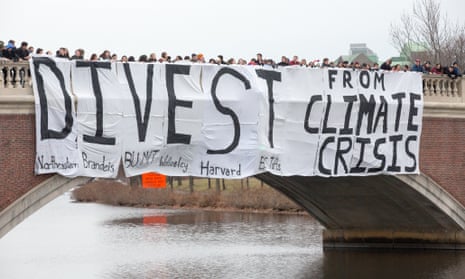No-one likes to be pigeon-holed, but labelling and counter-labelling is an inevitable part of any contentious discussion. From the ‘pro-lifers’ in arguments about abortion (implying that supporting abortion is ‘anti-life’), to the ‘Dignity in Dying’ campaign (suggesting that their opponents are in favour of an undignified death), categories and classifications define the debates - and often act to denigrate opposing views.
But climate change has been dogged by obsessive (and often vitriolic) name-calling. Whether its ‘denier’, ‘sceptic’, ‘lukewarmer’ or ‘alarmist’, no-one seems entirely happy with the box they find themselves put in. And new research published recently by Candice Howarth and Amelia Sharman argues that these rigid and often binary labels are producing an unhelpfully antagonistic and combative discourse on climate change.
In a paper reviewing and analysing the wide variety of labels applied to people holding different opinions on climate change, Howarth & Sharman begin by emphasising that for an issue like climate change - which is emotionally charged and politically complex - being able to categorise people based on their attitudes makes a lot of sense. But they also argue that many popular labels are accentuating divisions rather than promoting open dialogue.
Are you a denier?
The term ‘denier’ has proven particularly controversial: by invoking both negative stereotypes about psychological health and the spectre of anti-Semitism, the term is doubly problematic. Yet the alternative ‘sceptic’ is no less troublesome. All scientists are ‘sceptics’, in that they will only accept a hypothesis when there is reliable and consistent evidence for it, and other alternatives have been rejected. But scepticism has come to describe the views of those who dispute mainstream science - an ongoing bone of contention for the scientific community.
Howarth & Sharman suggest that the very act of creating and applying labels can cause opinions to become increasingly static, and may further emphasize a sense of ‘in-group cohesion’, exacerbating the lack of a constructive dialogue. But perhaps most importantly, binary (and often derogatory) labels simply do not capture the breadth of public opinion, which for the most part is neither ‘alarmed’ nor ‘in denial’ about climate change.
How to lead on climate change
Our experience at COIN supports the paper’s arguments: sustained and meaningful public engagement with climate change and climate solutions is only likely to be unlocked by seeking a multitude of understandings and perspectives on the issue. Another recent paper (in the journal Nature Climate Change) argued that public acceptance of the scientific consensus on climate change depends on first strengthening the social consensus around policies for reducing carbon emissions (rather than the other way around). Polarising and antagonistic labels are unlikely to be helpful in achieving this.
Whatever label you choose to apply, uncertainty about climate change, at root, is driven by people’s values and political beliefs, which become entangled with judgments about climate science. People work backwards from policies they don’t like the sound of, and downgrade their assessment of the validity of the science. Overcoming this impasse means ‘opening up’ the debate to dozens of competing perspectives, rather than ‘closing it down’ through enforced labels and linguistic categories.
The difficulty, of course, is that there are real, statistically robust relationships between people’s political and social beliefs and their views about climate change - and these can be hard to discuss in a ‘neutral’ way. Conservatives really are more likely to doubt the seriousness of climate change - and this means politics is part of the way that science folds into society, whether we like it or not. But do conservatives have a problem with climate change, or have climate change campaigners failed to communicate in a way that makes sense to the centre-right?
Achieving a consensus
Some will no doubt argue that people acquire the labels they deserve - and that ‘flat-earther’, climate denying, conspiracy theorists have no interest in productive dialogue with screeching, doom-mongering ‘eco-loons’. A climate change bun fight is certainly an entertaining way to kill a spare few minutes on social media. But for the vast majority of people who don’t fall easily into any obvious climate-category, the focus on baiting, courting or battling with the tiny minority of individuals who self-identify as a climate change sceptic is a distraction.
The real challenge is in creating a chorus of voices that may have very different perspectives, but are nonetheless focused on the common goal of a safe, secure climate for everyone. Nurturing a broad-based social consensus is more important than scoring points in a name-calling debate.
Maybe we need a new label for this kind of approach...any suggestions?
The leadership hub is funded by Xyntéo. All content is editorially independent except for pieces labelled ‘brought to you by’. Find out more here.
Join the community of sustainability professionals and experts. Become a GSB member to get more stories like this direct to your inbox.

Comments (…)
Sign in or create your Guardian account to join the discussion